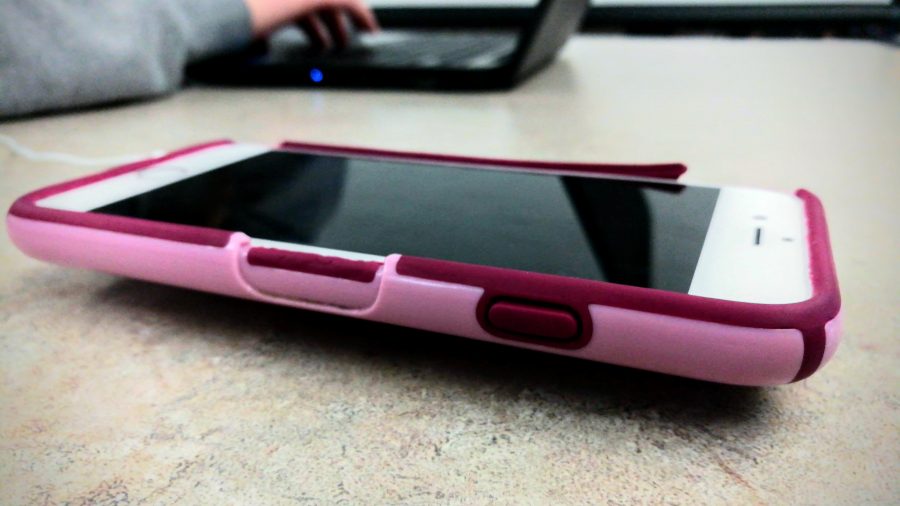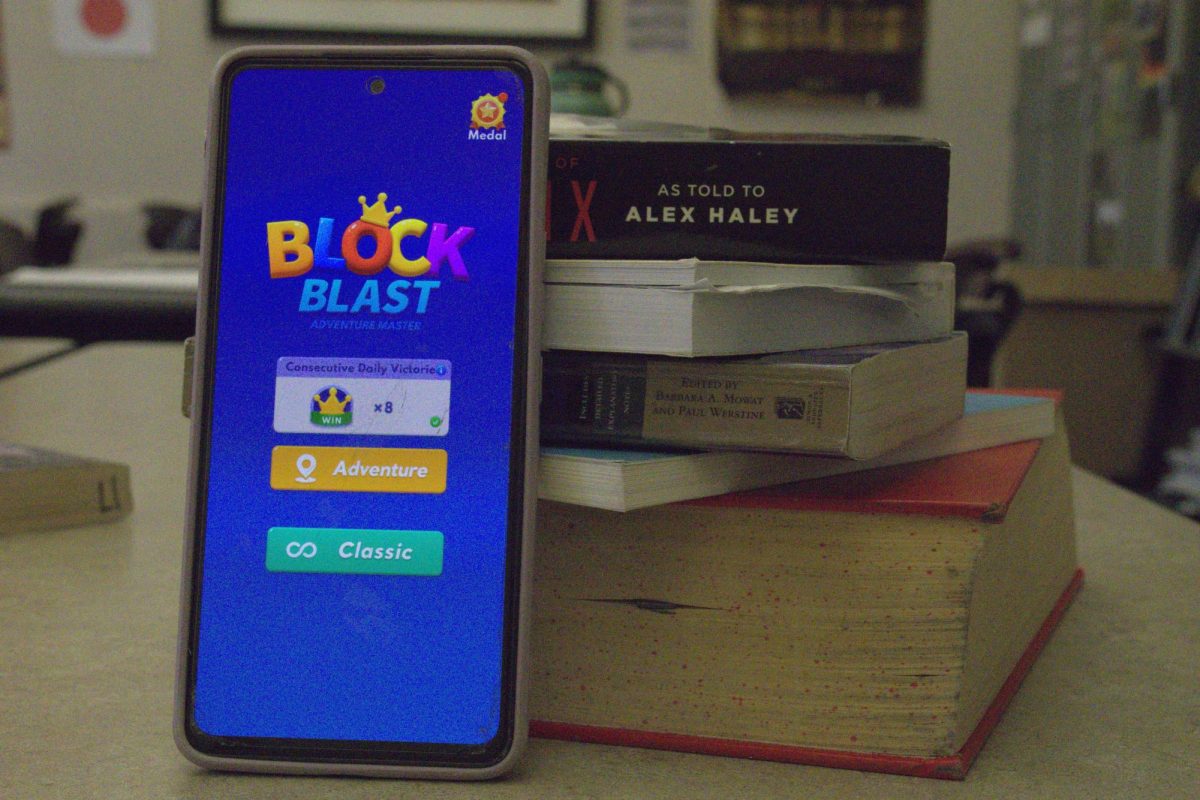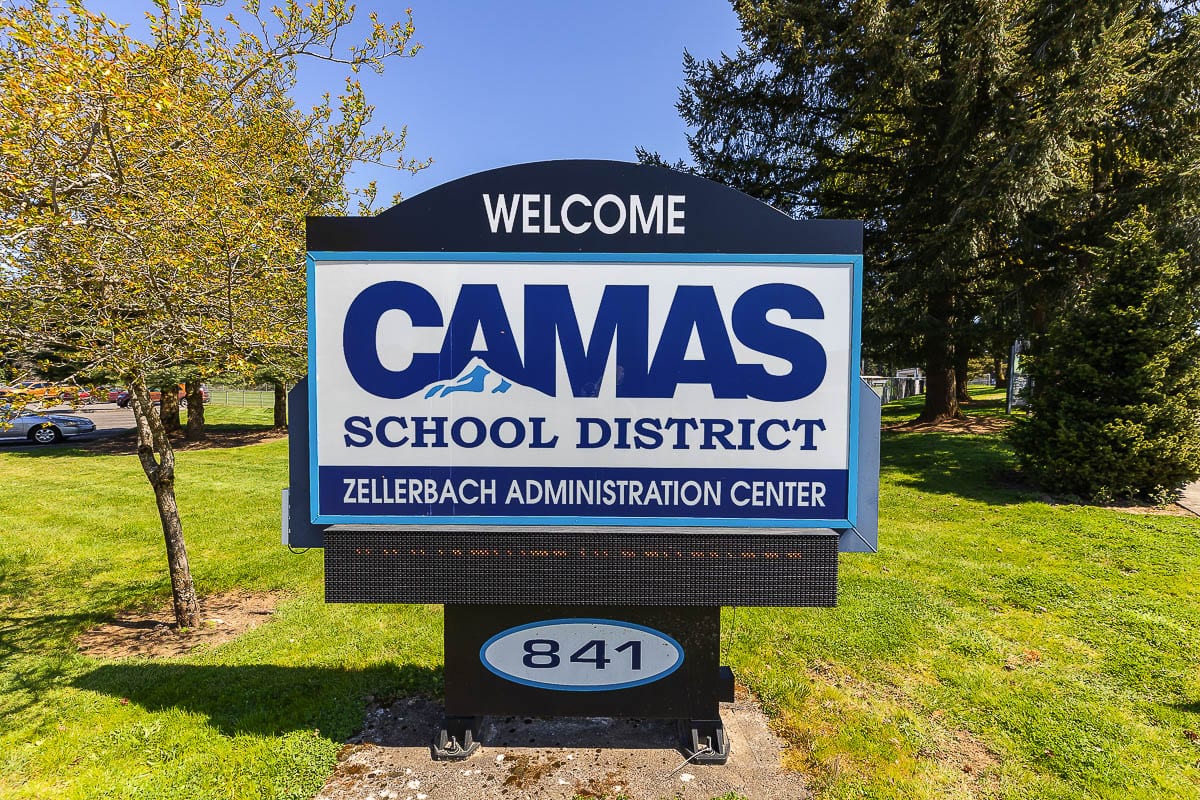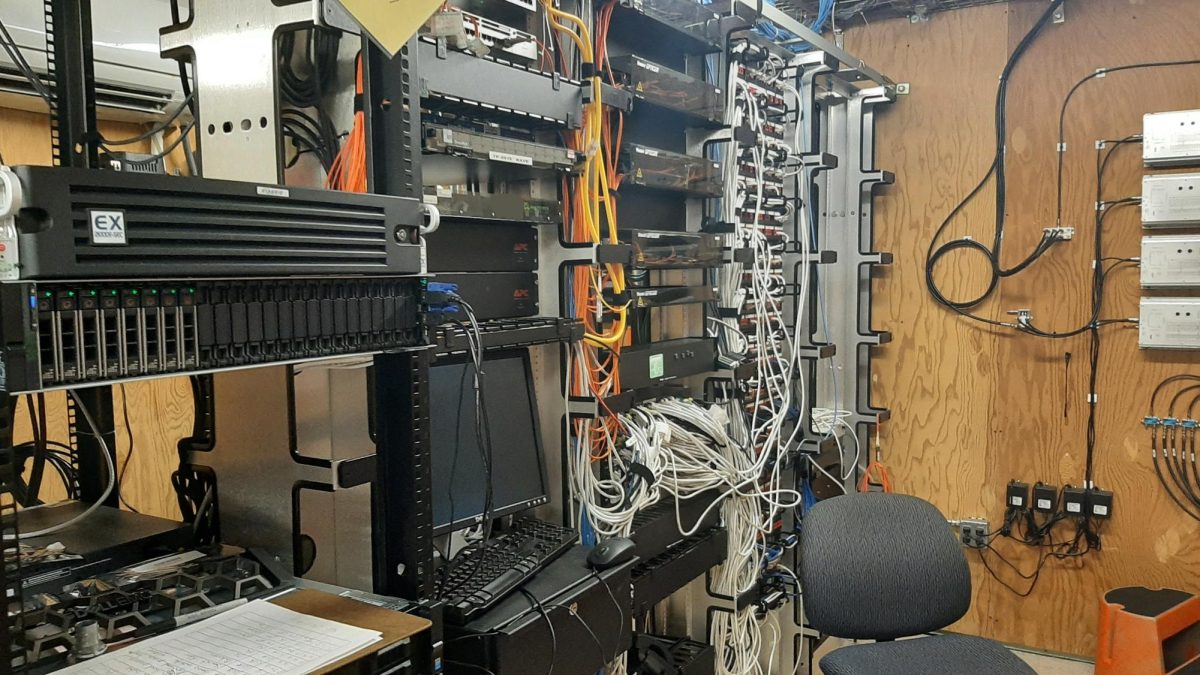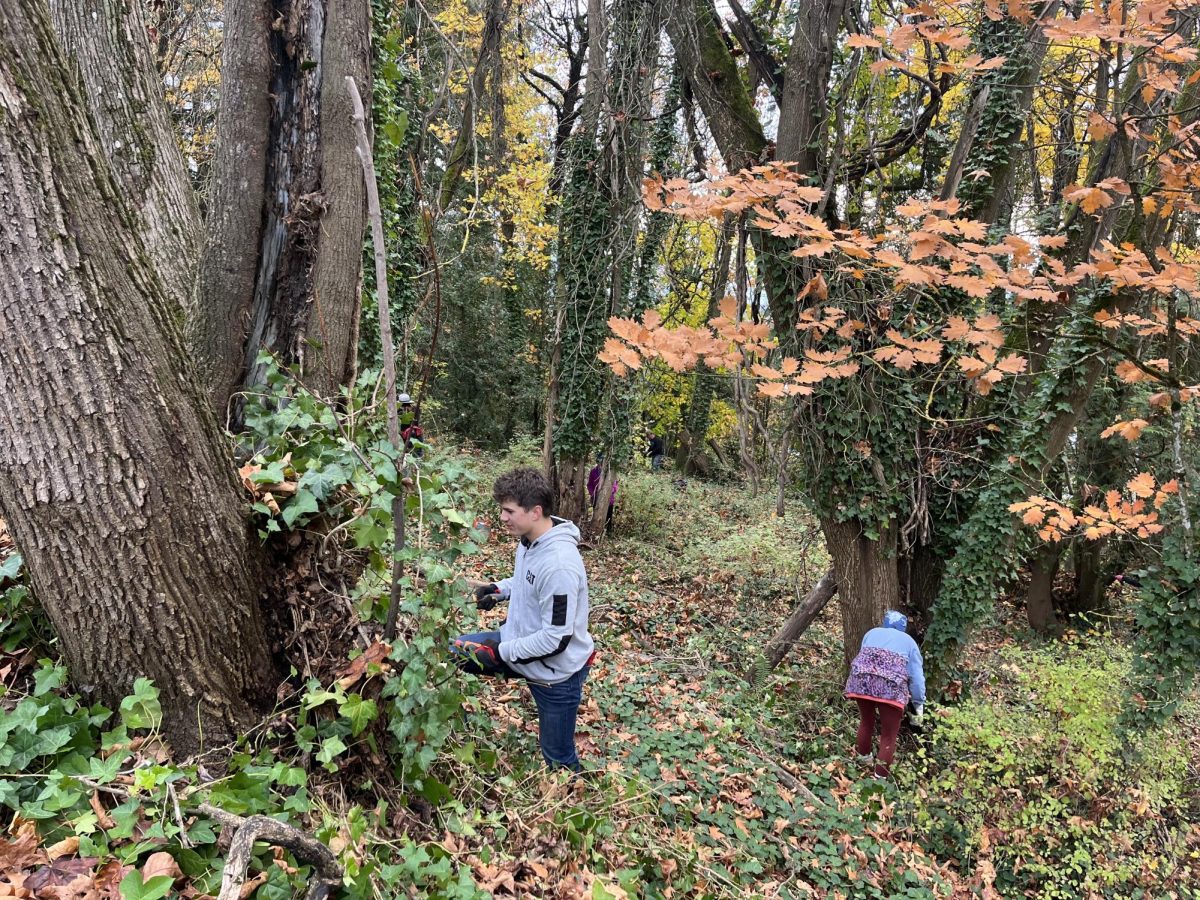
Goodbye text messaging, checking Instagram, and tweeting in the middle of class. That phone has been taken away. So how much can teachers/staff do with it? A line in the Camas High School Student Handbook about how “The PCD (Personal Computing Device, such as a cell phone) may also be searched by school staff if it is confiscated” brought up questions of what defines “searched” and what protections there are for student privacy.
The simple answer is as follows: If the school has reasonable cause, believing a student has committed an infraction, or plan to, then they may be required to share certain information on their PCD with an administrator. Often this ‘reasonable cause’ is determined through another student providing insight into something they observed. Furthermore these types of search requests have a specific ‘range’ in mind; For example, checking somebody’s Instagram posts within the last few days.
Mr. Brian Wilde, an administrator at CHS, provided an explanation on this topic stating, “in my experience, our searches with phones have been in direct relation to suspicious activity. Meaning if we were concerned about some drug use, or giving of drugs, and we had reason to believe that occurred over text messaging, then that’s when we might ask the student to show us their phone, and to show us the text message threads– Because we’re looking for something particular. So there’s limited scope to the search… It can’t be ‘hey I want to see your phone, and if I discover anything then, that’s really bad for you.’ It really has to be limited to what we’re concerned [about] in relation to a school legal violation.”
This sentiment is echoed by Camas School District Policy 3245, it states:
“By bringing a cell phone or other electronic devices to school or school-sponsored events, the student and their parent/guardian consent to the search of the device when school officials have a reasonable suspicion, based on objective and articulable facts, that such a search will reveal a violation of the law or school rules. The scope of the search will be limited to the violation of which the student is accused. Content or images that violate state or federal laws may be referred to law enforcement…”
Camas School District Policy 3245
Social media raises an interesting problem. When students post online, they are placing their thoughts into public space. Because of this, from a school security perspective, it might make sense to scan through these interactions for any concerning information. Unsurprisingly, however, that could pose quite a privacy concern in the minds of many students. Perhaps, for the sake of privacy, it is lucky that CHS has no current system or individual monitoring student social media interactions. The only process that observes these is that of students reporting incidents/concerns to the school administration.
What is particularly interesting when entering this new digital era, is the relatively loose laws surrounding digital devices at school. That leaves a varied set of policies from one school district to another. For instance, the American Civil Liberties Union published a report in October of 2015 detailing inconsistencies across Massachusetts, and in an article on the subject stated “the ACLU investigation also found that policies related to personal electronic devices varied greatly. Where districts had policies governing cell phone use, they often did not give enough detail to provide students and teachers with easily understandable and clear expectations for behavior, rules, and consequences for violating rules.” In extreme examples, there was no expected privacy for students’ data. However, the policy in the Camas School District remains that there must be “reasonable suspicion” before any search can be conducted.
Privacy of information has huge similarities to privacy of physical possessions, in regards to current interpretation of the law. When speaking about that subject, Wilde commented that “there’s often a misnomer about student rights to privacy in the school setting… And there’s actually a lot of supreme court decisions and precedent around the fourth amendment and search and seizure. One of the things is that schools are– while they are a public school, it is, in a sense, a form of private property; And when students are here they have limited rights to privacy, and limited rights to not have to be searched.” And he is entirely correct, the supreme court case he later refers is New Jersey v. TLO, the decision was reached in 1985, and it involved a girl whose bag was searched (and evidence of marijuana sales was found) after she was accused of smoking in the bathroom.
The decision stated that, in paraphrase from EPIC (the Electronic Privacy Information Center) “school officials do not have to obtain a warrant before searching a student who is under their authority if the officials have reasonable grounds for suspecting that the search will turn up evidence that the student has violated the law or the rules of the school. The court held that searches of students’ belongings are permissible if the measures adopted are reasonably related to the objectives of the search and not excessively intrusive in light of the student’s age and sex and the nature of the infraction.” Beyond these legal precedents, there is not a whole lot of explicit guidelines for a given district regarding student digital privacy; And for such a wealth of interconnected information, that somewhat outdated system can pose a difficult problem.
When asked how they felt about the ability of the administration to search with reasonable suspicion Liam Martin, a sophomore at CHS, stated “I think, as things are now, we have a right to privacy. But if they have a reasonable suspicion I think that’s fair.” Grace Ireland, another sophomore at CHS, responded “I think that could be a good and bad thing. I think it should be allowed, cause it could be helpful in certain situations– But I think there’s also sometimes joking amongst friends, that could come across as suspicious when it’s not. It’s a difficult question because I wouldn’t want a staff member looking at my phone, even if I’m not doing anything wrong, it’s a personal thing, but at the same time it could help a lot of people.”
The current policies for the privacy of students’ digital data as part of the Camas School District help create a safe environment for students and staff. If needed, allowing crucial information to be obtained to prevent safety and health concerns. They also reveal an interesting exploration into the policies and regulations, or sometimes lack thereof, dealing with problems of modern invention.






































